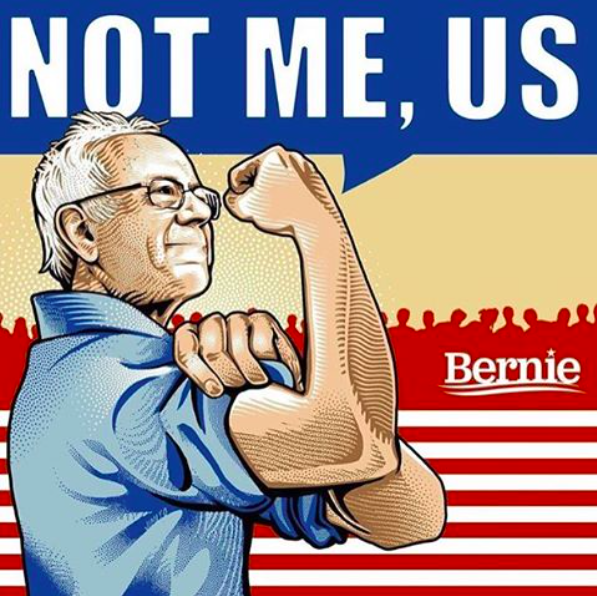“You like Bernie Sanders? But He's a Socialist!”
 “Socialist” has become somewhat of a dirty word in American politics. So, when people hear that Bernie Sanders declared himself a socialist before running in the presidential election, many Americans immediately wrote him off. I know I did. But Sanders is not a self-proclaimed socialist, he is a self-proclaimed democratic socialist. And yes, there is in fact a difference.
“Socialist” has become somewhat of a dirty word in American politics. So, when people hear that Bernie Sanders declared himself a socialist before running in the presidential election, many Americans immediately wrote him off. I know I did. But Sanders is not a self-proclaimed socialist, he is a self-proclaimed democratic socialist. And yes, there is in fact a difference.
While you cannot assign a single definition to socialism, it is most commonly understood as a system in which the government, not individual people or companies, own and control all major industries—meaning the production, distribution and exchange of goods, capital, and land—to ensure equality of wealth (bit of a long-winded explanation). Here we have your Vladimir Lenins, Mao Zedongs, and Fidel Castros.
Democratic socialism, on the other hand, is a more modern, reformed version of traditional socialism. First and foremost, it has a democratic foundation. Our representative government will remain intact, and elections will still be held (Sanders does not want to be the Mao of the United States). However, what Sanders would like to change is the amount of money that wealthy donors give to campaigns so as to limit their influence. This isn’t exactly a socialist idea, though.
Second, he does not want the government to have complete control of the economy. Sanders asserts that he has no plans to eliminate corporate executives and close the stock market. Democratic socialists still believe a capitalist market is best; they just want tighter restrictions on corporations and their owners. This may include raising the minimum wage or placing a limit on how much more a CEO can make than the rest of his/her employees.
On the more socialist end, Sanders does support a national healthcare system, tuition-free public colleges and universities, and an end to “corporate welfare” (such as tax breaks for the wealthy). But even these notions are starting to be incorporated into the democratic platform.
Lastly, Sanders wants more than just wealth equality. He advocates equality for African-Americans, women, and other minorities. But again, this is not an exclusively socialist ideal. It is something we often associate with the Democratic Party. These parallels are why democratic socialism falls under democratism, not socialism, and why Sanders is running under the Democratic Party, not as an independent.
If you are still unsure of what exactly democratic socialism means, you can listen to the man himself:
“Democratic socialism means that we must create an economy that works for all, not just the very wealthy…[it] means that we must reform a political system in America today which is not only grossly unfair but, in many respects, corrupt…Democratic socialism, to me, does not just mean that we must create a nation of economic and social justice. It also means that we must create a vibrant democracy based on the principle of one person one vote.”
As Sanders put it, he wants to be more like an FDR, LBJ or MLK Jr.—not a Joseph Stalin.
Now when people tell you that you’re voting for a socialist, you can explain to them exactly who, or rather what, you are supporting. Or, when people ask you why you’re not voting for Sanders, you know better than to simply say “well, because he’s a socialist.”
